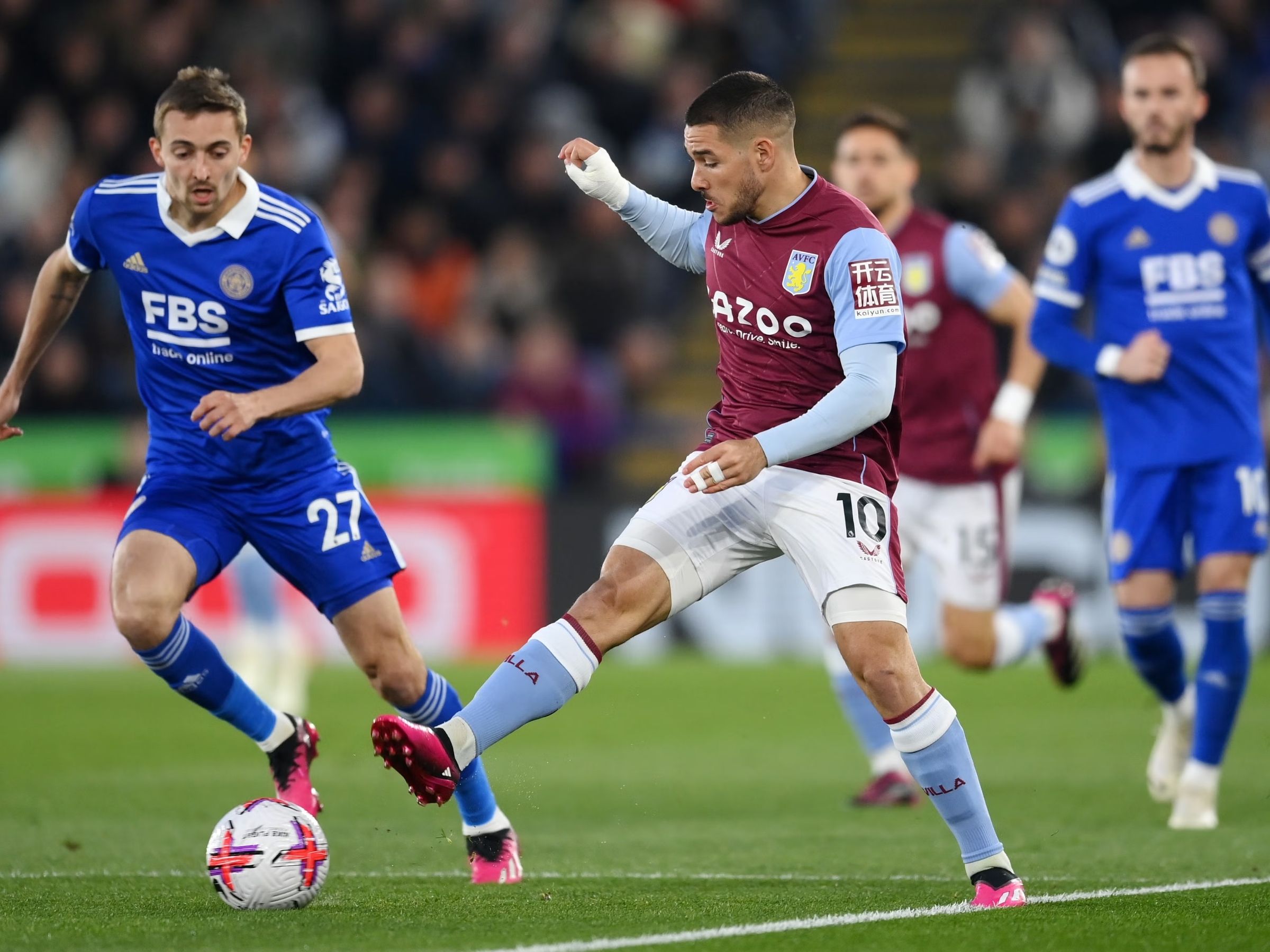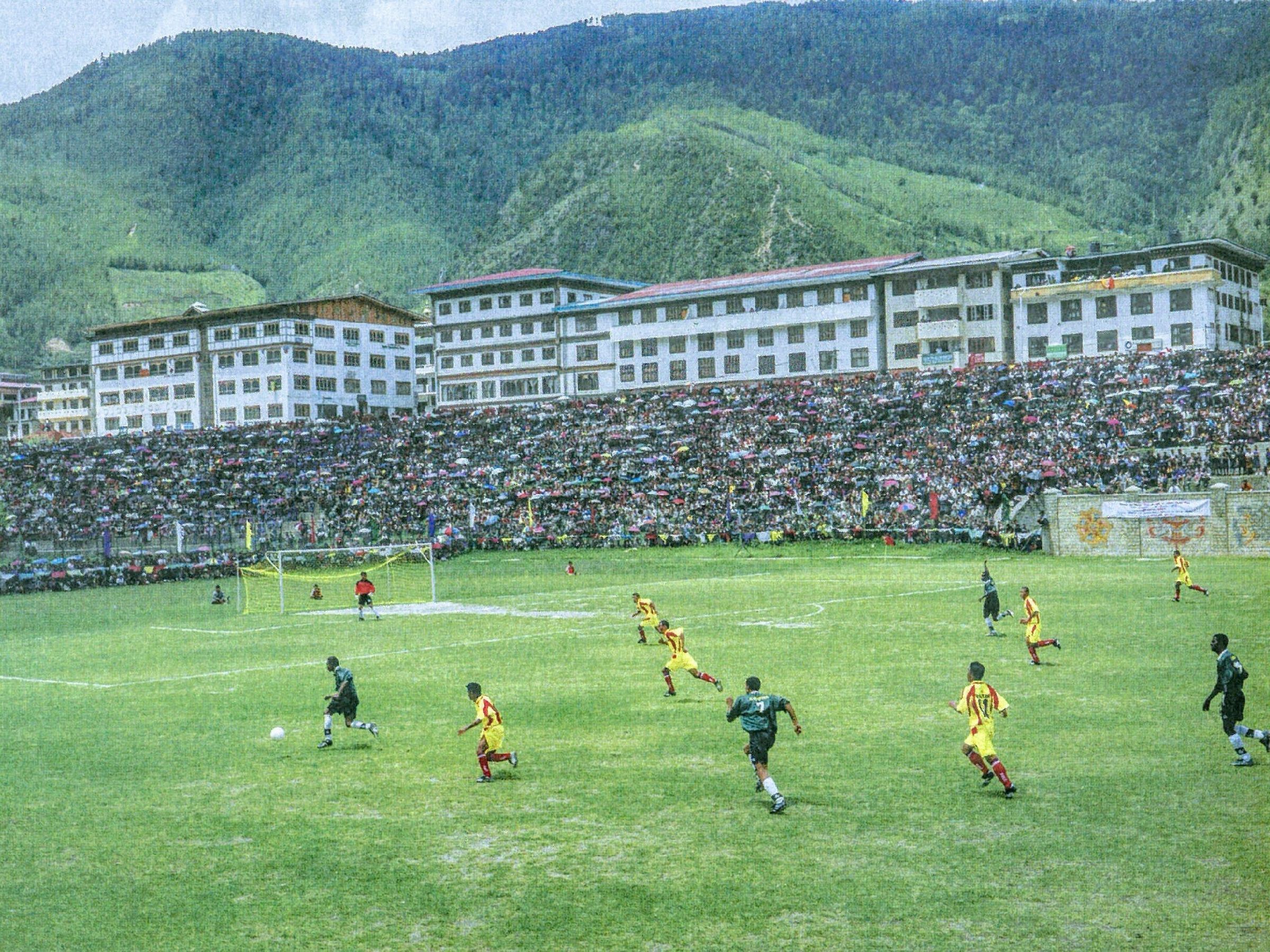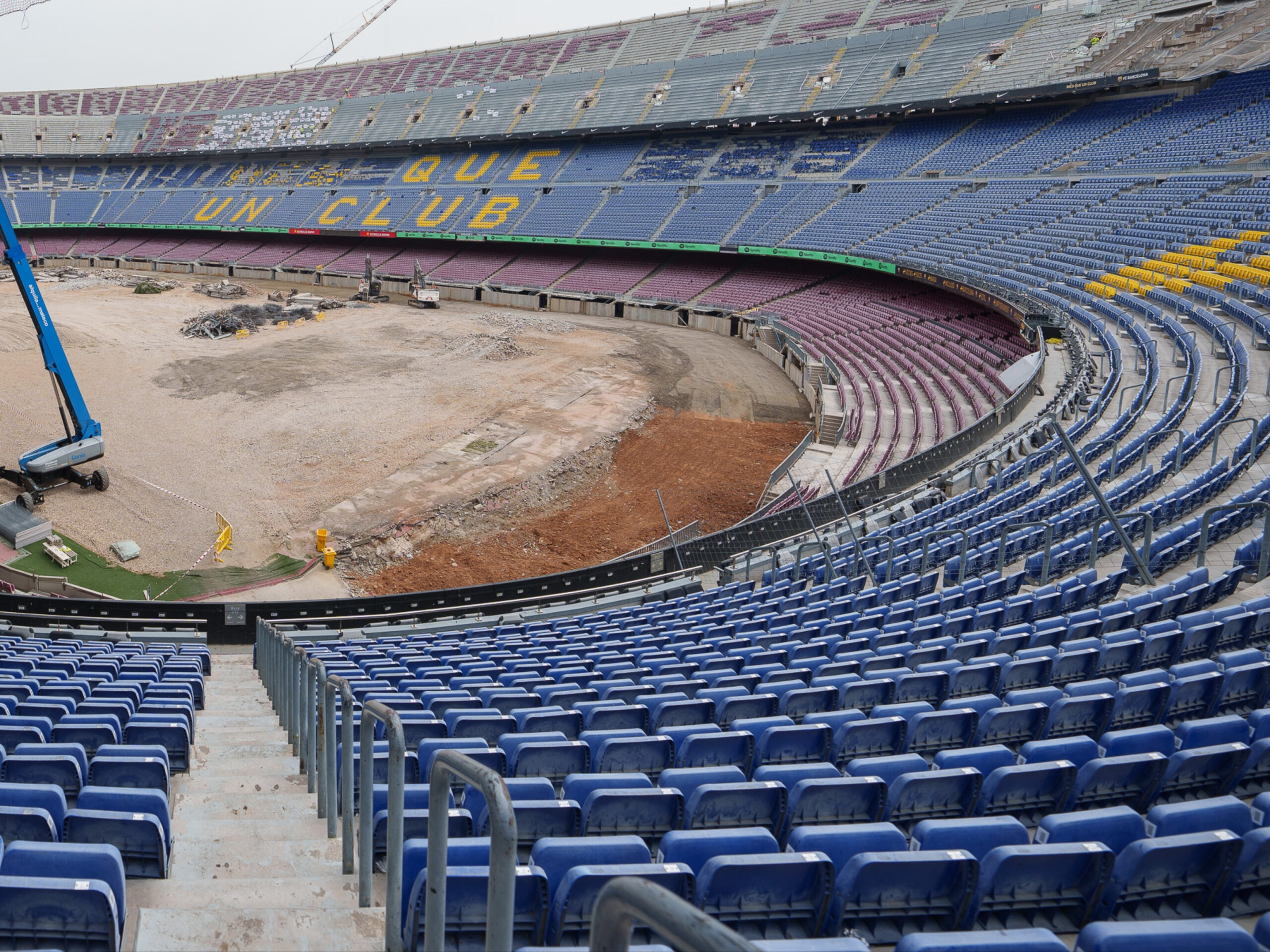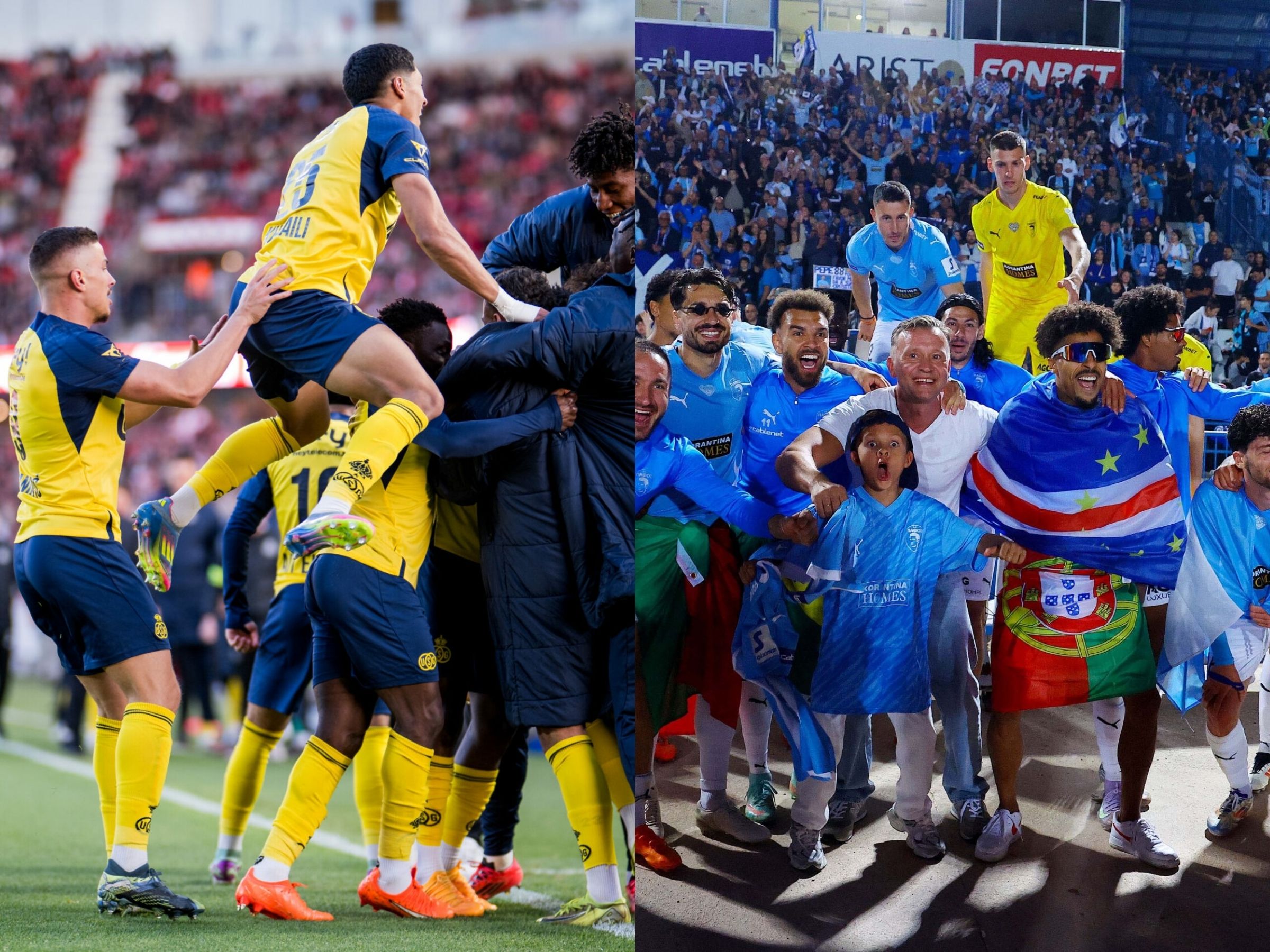International football hits differently. Sure, many might dismiss it as boring or inconsequential, and admittedly, friendlies and tournaments like the Nations League often carry that reputation. But the World Cup? Its grandeur is undeniable, even at the junior level. Just ask the Brazil U-17 football team from seven years ago, who experienced an extraordinary wave of support 14,774 kilometers from home—something they seldom felt on their own turf.
The 2017 FIFA U-17 World Cup was special, especially for those in India. The country, with a population of over 1.4 billion, had never hosted an international tournament before, making it an event of national importance. Fans of the sport, and even those rarely in touch with it, were drawn to it like moths to a flame. Unsurprisingly, one of the most supported teams in the tournament turned out to be Brazil.
A Longstanding Love Affair
India’s love for Brazilian football, or Joga Bonito, wasn’t new in 2017. It traced back to the days of Pelé’s brilliance for the Seleção, when he redefined the sport in the 1950s and 1960s. Without the luxury of following European club football at the time, international matches were the only connection to the game for fans in India and across Asia. And with Brazil dominating the sport for decades, an entire generation was captivated, making Brazil their favorite footballing team.
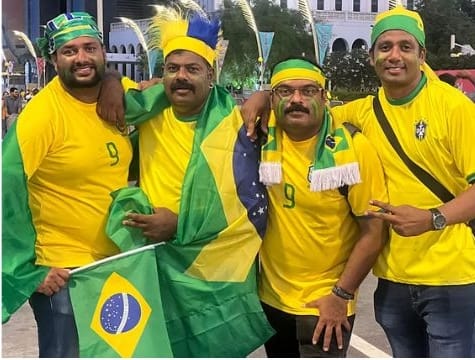
Support for Brazil has been passed down through generations, and in 2017, Indians finally had the chance to cheer for them in a competitive setting, live in stadiums for the very first time. It was nothing short of a festival—the Rio Carnival had arrived in India. The entire nation was ready to celebrate, united by their admiration for and unwavering support of the Brazilian U-17 national team.
First Things First: The Support Was Brilliant Throughout
It would be unfair to say that Brazil was the most heavily supported team in India. Newer fans, who had witnessed the rise of European powerhouses, turned to the likes of England, Spain, and Germany, who also received significant backing.
Local authorities treated the tournament with immense importance, with every host city—Kolkata, Kochi, Goa, Navi Mumbai, Delhi, and Guwahati—making significant efforts to renovate stadiums and improve the surrounding infrastructure. These venues, often neglected due to the lack of attention to Indian football, were given a much-needed upgrade. In the end, all those efforts paid off.
The attention this tournament garnered—making it the most successful U-17 World Cup of all time—drew praise from every corner of the footballing world. FIFA President Gianni Infantino even rewarded the country by hosting a first-ever global conference in Kolkata during the tournament.
FIFA’s Head of Tournaments at the time, Jaime Yarza, praised the overall support:
“First and foremost, the fans have filled the stadiums in all the matches, showing fair play and respect, cheering on all the teams, and really loving the football they have seen. The figures speak for themselves: more than 1.2 million fans attended games at the stadiums,” he said to FIFA.com.
The final figure for number of fans who had attended turned out to be 1.34 million, making it the most attended FIFA U-17 World Cup of all time.
Why Brazil?
Just like Brazil, India shares a special connection with the late, great Argentine maestro Diego Maradona, a bond that has turned many in the country into passionate Argentina fans. Of course, Lionel Messi carries that legacy forward, and it’s safe to say that if Argentina had participated in the 2017 tournament, they too would have enjoyed widespread support.
Alas, they failed to qualify. Joining Brazil from South America were Chile, Paraguay, and Colombia. But let’s shift our focus to Brazil, and before we dive into their journey, let’s get one thing straight—they didn’t win the tournament.
So, why all the hype? The Eleventh Minute was in attendance when one of the most raucous crowds ever took over a football stadium. Just listen to the roar of the crowd when Brazil equalized against Germany in the quarter-finals held at the Salt Lake Stadium in Kolkata.
The Journey
Brazil was placed in the same group as Spain, Niger, and North Korea, and they made quick work of it, finishing top of the group with their games held in Kochi and Goa—both footballing hotspots in India.
Brazil won all three of their matches, setting up a Round of 16 encounter with Honduras, also in Kochi. The final score was 3-0, and Brazil’s next match was a blockbuster: a clash against Germany at the Salt Lake Stadium, also known as the Vivekananda Yuba Bharati Krirangan, in Kolkata—arguably the Mecca of Indian football.

The significance of this match was twofold. Firstly, Brazil and Germany were two of the biggest names in world football. Secondly, the 7-1 humiliation Brazil suffered at the hands of Germany was still a fresh wound for many who wore the iconic canary yellow jersey.
The two teams hadn’t faced each other in a World Cup setting since then, making this a chance for the youngsters to seek some form of revenge that evening in Kolkata. Safe to say, the match certainly lived up to its hype.
An Incredible Evening at the Salt Lake
The game began with Germany firmly in control, while Brazil appeared somewhat unsettled. Was it the sea of yellow in Kolkata? Perhaps.
Imagine being 16 or 17 years old, representing Brazil on the biggest stage available at that age. You travel to Kolkata—a city you may have never heard of before. In a tournament that had, until then, seen mostly neutral support, you suddenly find yourself greeted by over 60,000 fans chanting “Brazil, Brazil.” It had to make an impact.
Germany pressed relentlessly for a goal, eventually earning a penalty. Jann-Fiete Arp, now playing for Holstein Kiel in the Bundesliga, calmly converted it. The crowd at Salt Lake Stadium offered polite applause, but for the die-hard Brazil supporters, silence prevailed.
The second half, however, was a different story. After a likely rousing half-time team talk by coach Carlos Amadeu—who tragically passed away in 2020 while coaching Al-Hilal in Saudi Arabia—the Brazilian players returned to the pitch with renewed intensity.
With the crowd roaring them on, Brazil equalized in the 71st minute through a stunning strike from Weverson Moeira. The Salt Lake Stadium, a venue that has witnessed countless iconic moments, including fierce Kolkata derbies between East Bengal and Mohun Bagan, erupted. The roar following Weverson’s goal was deafening—an unforgettable moment etched into the stadium’s storied history.
But that wasn’t all. Brazil sensed victory, while Germany seemed deflated. A goal felt inevitable, and it arrived in the 77th minute. Paulinho, then on Bayer Leverkusen’s books, unleashed a stunning strike from the edge of the box to make it 2-1.
FT | #FIFAU17WC
QUARTER-FINAL – KOLKATA
🇩🇪Germany 1-2 Brazil🇧🇷
Weverson and Paulinho take Brazil through to semis! pic.twitter.com/9nsh6c5aql— FIFA (@FIFAcom) October 22, 2017
The Salt Lake Stadium erupted once more, the roar as deafening and electric as it had been after the equalizer. The crowd, draped in a sea of yellow, celebrated with unbridled passion, lifting the Brazilian players to new heights as they edged closer to a memorable comeback.
Brazil won the game, and booked a slot into the semis where they would face England in a match that was initially scheduled to be held in Guwahati. Boy, the Brazilian players must’ve wished for Kolkata again… and they got it.
Brazil won the game and secured a spot in the semifinals, where they were set to face England. The match was initially scheduled to take place in Guwahati, but fate had other plans. Surely, the Brazilian players must have wished to play in Kolkata again… and they got their wish.
End of a Memorable Campaign
Heavy rains had lashed Guwahati, leaving the pitch waterlogged and unplayable. While it wasn’t the best look for the venue, neither Brazil nor England’s players were likely to complain. England had played most of their games in Kolkata and were comfortable in the setting, while Brazil fondly remembered their thrilling encounter against Germany. The stage was set for another high-stakes clash on a cool October evening in the City of Joy.
Unfortunately for Brazil, joy eluded them this time. The support in the stadium was just as fervent as before, but England’s formidable lineup, featuring future stars like Phil Foden, Morgan Gibbs-White, and Marc Guehi, proved to be too strong.
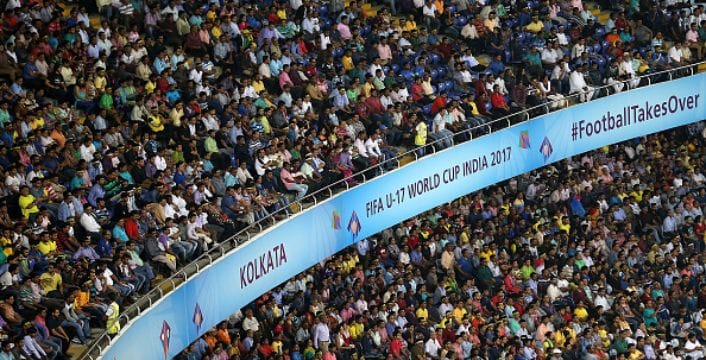
Rhian Brewster, who would go on to win the FIFA Adidas Golden Boot, opened the scoring in the 10th minute. Wesley Andrade briefly restored hope with an equalizer in the 21st minute, but Brewster was unstoppable, scoring again in the 39th and sealing his hat-trick in the 77th minute. The match ended 3-1 in England’s favor.
England would later defeat Spain in the final, held at the Salt Lake Stadium, to lift the trophy.
For Brazil, it was a disappointing end to what had been a remarkable campaign. They entered the tournament as bona fide favorites, and though they fell short of the ultimate prize, their journey—competing for a World Cup in front of passionate Brazilian supporters in faraway India—was unforgettable.

